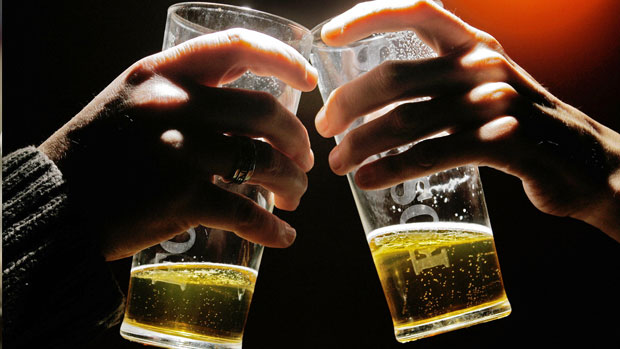Drink-drive limit 'should be almost halved' to match Scotland
Police Federation calls for tougher rules and warns that women in particular 'aren't getting the message'

A free daily email with the biggest news stories of the day – and the best features from TheWeek.com
You are now subscribed
Your newsletter sign-up was successful
The drink-driving limit in England and Wales should be lowered to bring it in line with Scotland and Europe, the Police Federation has said.
The current limit in England, Wales and Northern Ireland is 80mg per 100ml of blood, equivalent to two to four units of alcohol. The limit was reduced to 50mg in Scotland last year and Northern Ireland is currently considering implementing a similar law. If the new rules came into effect, drivers could be over the limit after just one pint of beer.
"We would like to see a lower drink drive limit as most other European countries have as well as Scotland which saw a marked reduction in failed breathalyser tests as soon as the law was changed last year," the Police Federation's Victoria Martin told the Daily Telegraph.
The Week
Escape your echo chamber. Get the facts behind the news, plus analysis from multiple perspectives.

Sign up for The Week's Free Newsletters
From our morning news briefing to a weekly Good News Newsletter, get the best of The Week delivered directly to your inbox.
From our morning news briefing to a weekly Good News Newsletter, get the best of The Week delivered directly to your inbox.
Prosecutions for drink driving in Scotland have fallen by a third since the rules came into effect in December, which suggests that motorists are being more careful about driving after consuming alcohol, the BBC reports.
New research shows that while the overall number of drink-drivers is falling, the proportion of women convicted is rising, police warned. Female drivers now account for 17 per cent of all drink-driving convictions, compared to just nine per cent in 1998.
"We've seen a steep decline in men drink driving over the years, with targeted advertising campaigns, which is great, but women don't seem to be getting the same message," said Martin.
Kris Beuret OBE, Director of Social Research Associates and author of the study, said many of the reasons women choose to drive under the influence of alcohol are gender specific.
A free daily email with the biggest news stories of the day – and the best features from TheWeek.com
"These include the effects of different metabolisms on men and women's bodies, confusion about how many units are in alcoholic drinks – especially wine – and thinking that the police would be less likely to stop them," she said.